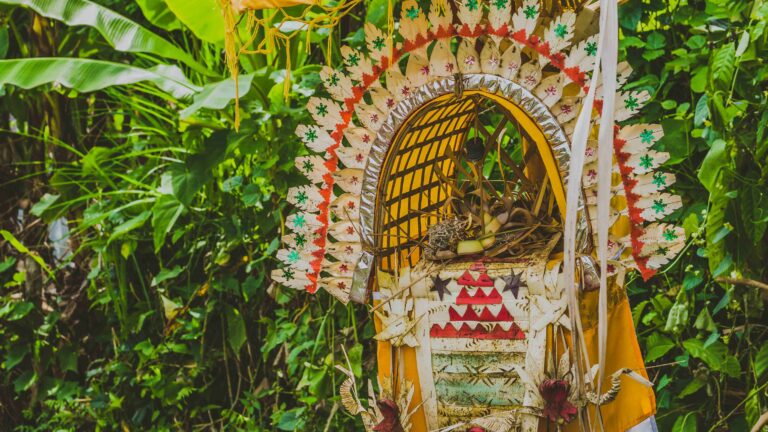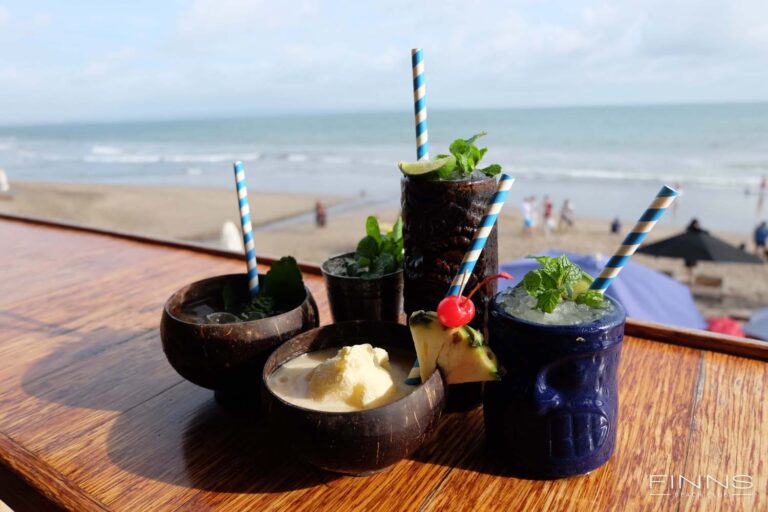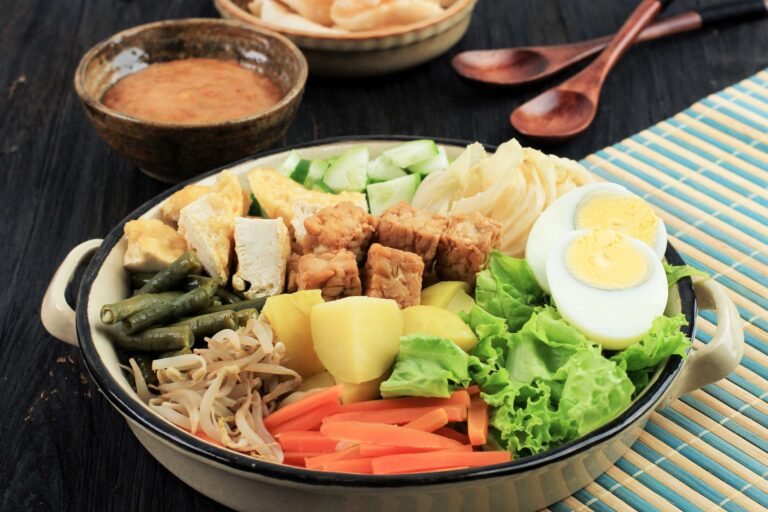Planning your next adventure in Southeast Asia but torn between Bali and Chiang Mai? You’re not alone. These two destinations have been luring travellers, expats, and digital nomads for years, but they offer completely different vibes.
Bali is an island paradise, think surf, sunsets, temples, and a lively coastal scene. Meanwhile, Chiang Mai is all about culture and calm, tucked away in the green mountains of northern Thailand.
Both are affordable, full of flavour, and packed with things to do, but depending on the kind of experience you’re after, one might suit you better than the other.
If you’re weighing up whether to visit Chiang Mai or chase the beachy vibes of Bali, this guide breaks it all down. So, let’s take a closer look.
Bali In Brief: What’s It Like?

Although it’s just one island in Indonesia’s sprawling archipelago, Bali feels like a world of its own. Its deep-rooted Balinese Hindu culture, countless temples, and rich artistic traditions give it a distinct identity, totally different from the rest of the country.
From the surf beaches of Uluwatu to the rice terraces of Ubud and the trendier beaches of Canggu, Bali is as diverse as it is beautiful. You’ll find a strong wellness scene, buzzing nightlife, loads of vegan cafes, and a digital nomad crowd that’s helped shape the island into a creative, semi-bohemian hub.
Yes, Bali can be touristy in places, but it’s popular for a reason. And beyond the hotspots, there’s still plenty of calm, nature, and authentic charm to discover.
Chiang Mai In Brief: What’s It Like?
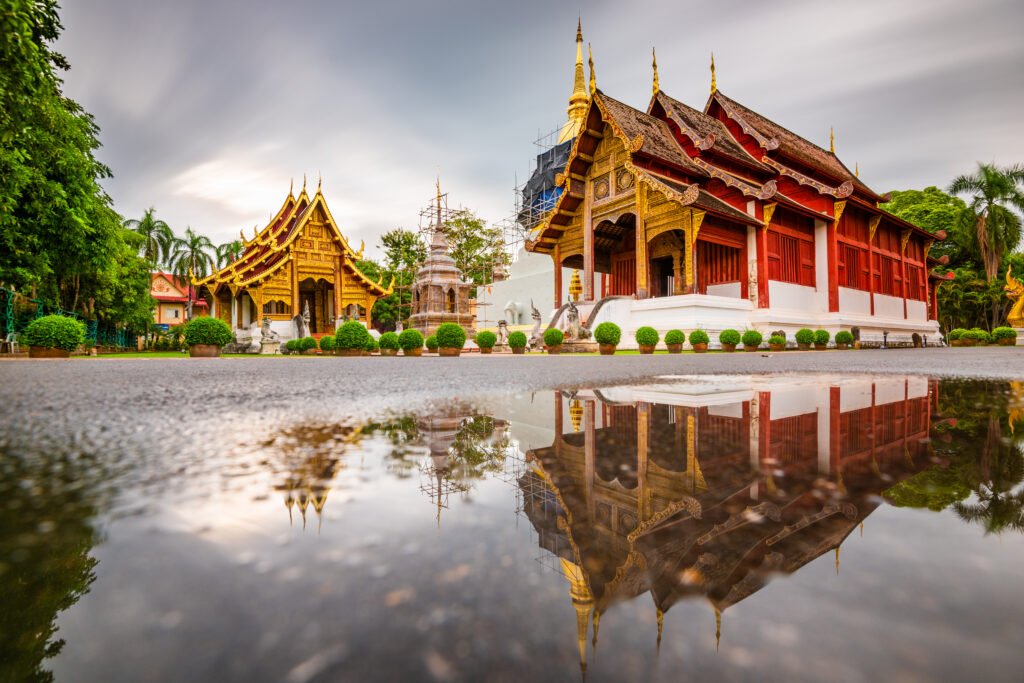
Chiang Mai is northern Thailand’s laid-back cultural capital, a city full of temples and coffee shops, surrounded by cool mountain air and jungle-covered hills. While it’s inland and far from the sea, it makes up for it with lush scenery, strong local culture, and a slower pace of life.
We’ll mostly be focusing on Chiang Mai city and its immediate surroundings, but as other parts of Chiang Mai province, which is roughly comparable in size to Bali. That includes waterfalls, national parks, elephant sanctuaries, hot springs, and scenic mountain roads leading to remote hill tribe villages.
Chiang Mai isn’t just for tourists; it has long been a base for remote workers, retirees, and creatives looking for a more grounded, affordable lifestyle. It’s got great food, friendly locals, and enough to keep you busy for weeks (or months).
Bali Vs Chiang Mai Comparison
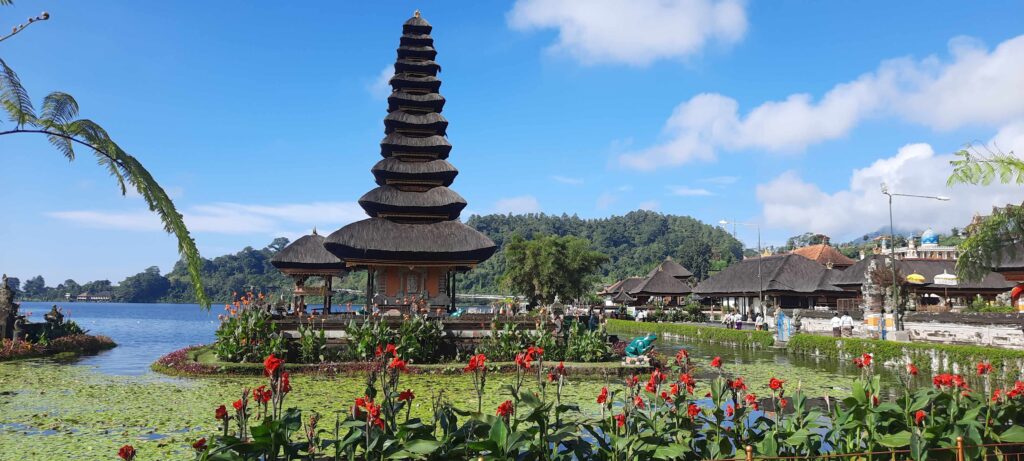
We’ve found the best way to compare two very different destinations is to line up the things that matter most when choosing your next trip. Whether you’re chasing sun, looking for street food, or thinking about the cost of living, we’ll break it all down side by side.
This isn’t about declaring a single winner straight away. Instead, we’ll look at what each place offers and who it suits best, from digital nomads and backpackers to couples, foodies, and culture lovers. At the end, we’ll step back and see which destination comes out on top.
Beaches In Bali Vs Mountains In Chiang Mai

We can’t exactly compare the beaches of both destinations head-to-head — Chiang Mai is landlocked, tucked up in Northern Thailand’s mountains, while Bali is an island surrounded by surf and sea. So, instead, let’s put Bali’s beaches up against Chiang Mai’s mountains and see which one comes out on top.
Bali’s coastline is incredibly diverse. You’ve got white sand beaches on the Bukit Peninsula, black volcanic sand along the east coast, hidden coves near Uluwatu, laid-back fishing villages like Amed, and pumping surf spots from Canggu to Medewi.
It’s also a solid place for scuba diving and snorkelling, with coral reefs, shipwrecks, and colourful marine life just offshore. Whether you’re chasing waves, exploring tide pools, or sipping cocktails with a view, there’s a beach for every mood.
Chiang Mai’s mountain setting offers a totally different vibe. You’ll find elephant sanctuaries in forested valleys (choose ethical ones), serene mountaintop temples like Wat Phra That Doi Suthep, and opportunities for multi-day treks through the hills to visit small hill tribe villages.
It’s worth noting that Bali, while not a fully mountainous setting like Chiang Mai, still boasts several pretty impressive mountains.
It’s also cooler up there, which makes hiking and camping way more comfortable. The views, especially during the dry season, can be stunning, layers of green stretching out under crisp blue skies.
Verdict: Bali wins for its sheer variety and accessibility when it comes to beaches; it’s hard to beat that mix of surf, sun, and sand all in one place… plus it has some mountains too!
Safety In Bali Vs Safety In Chiang Mai

Bali is generally safe for travellers, with friendly locals and a relaxed atmosphere. Petty crimes like pickpocketing and bag snatching can happen, especially in busy tourist spots, so staying aware is important.
Roads in Bali are known for being chaotic, with scooters and cars weaving through traffic, which can lead to accidents. Keep in mind that volcanic activity is possible but rare, and the situation is monitored throughout the year.
Chiang Mai also offers a generally safe environment, but like Bali, petty theft can occur in crowded places.
Both Chiang Mai and Bali have some wild roads, but Thailand as a whole has the unfortunate distinction of topping the world for road traffic deaths annually, and Chiang Mai’s traffic can be hectic, so caution is needed, especially if riding scooters or crossing streets.
In recent years, Chiang Mai has experienced heavy floods due to irregular weather patterns, especially during the wet season. And it suffers from poor air quality during the burning season, which may affect some visitors.
You’ll see the occasional stray dog in both places, but they’re usually harmless.
Verdict: Draw. Both Bali and Chiang Mai have their safety challenges, from busy roads to natural events, but with common sense and usual travel precautions, both are safe destinations.
Things To Do In Bali Vs Things To Do In Chiang Mai
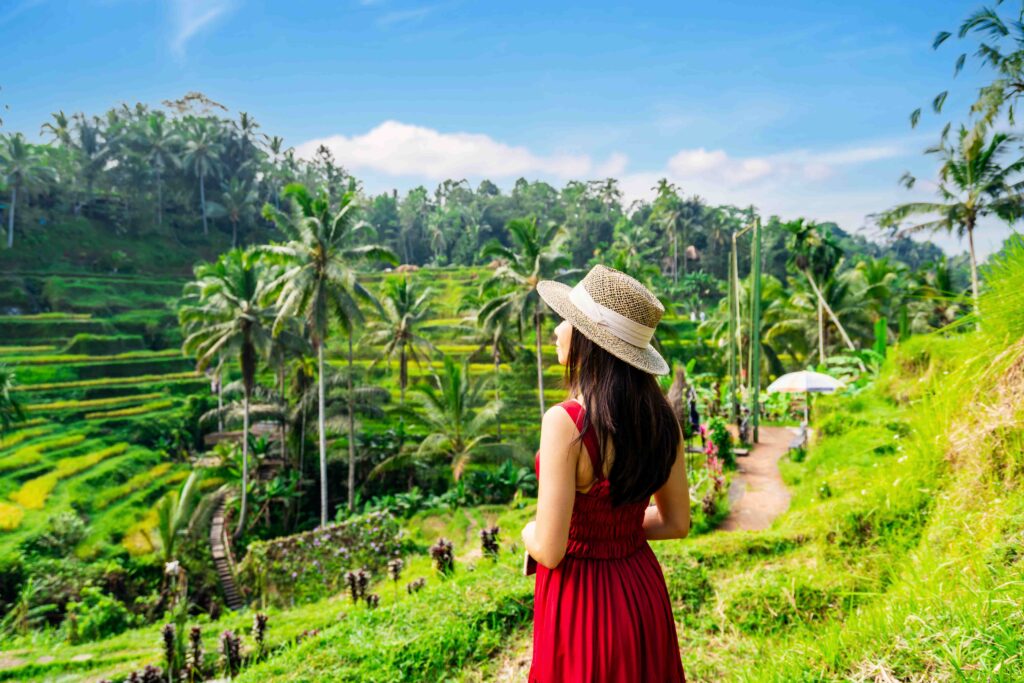
Bali is a playground for travellers seeking variety. You can surf world-class waves in Uluwatu, trek up Mount Batur for sunrise, or chase waterfalls in the lush jungle.
There are sacred temples like Tanah Lot and cliffside gems like Uluwatu Temple, while beach bars, diving, yoga retreats, and scenic rice terraces round out the experience.
Whether you’re into nature, nightlife, wellness, or adrenaline, Bali has it all.
Chiang Mai takes a slower approach, perfect for those who love culture and calm.
Think temple-hopping through the Old City, visiting elephant sanctuaries, or hiking in nearby national parks. There are regular night markets, excellent cooking classes, and peaceful countryside adventures in nearby places like Mae Kampong or Pai.
The annual Yi Peng Lantern Festival is unforgettable, and the city is great for learning new skills, such as Muay Thai, massage, or even a new language.
Verdict: Bali wins. It simply offers more variety and more scale, with something for every kind of traveller. Chiang Mai is full of charm, but Bali’s blend of beach, jungle, nightlife, and natural wonders makes it unbeatable for things to do.
Nightlife In Bali Vs Nightlife In Chiang Mai

Chiang Mai’s nightlife is fun, laid-back, and often social rather than wild. There are casual bars in the Old City, late-night pubs in the Nimmanhaemin area, and live music venues scattered around town, as well as an underground dance music scene.
While most spots close by midnight due to local laws, there’s still enough action to keep night owls entertained, just don’t expect full-blown parties.
The crowd leans more toward digital nomads, backpackers, and expats than hard-partying tourists, and a decline in tourism over the last few years has seen many bars and venues pull the shutters down for the last time.
Bali, on the other hand, is famous for its party scene. You’ll find world-class rooftop bars, international DJs, multi-storey dance venues, and buzzing cocktail bars from sunset till sunrise.
But, the thing that makes Bali’s nightlife scene stand out is FINNS Beach Club, the best beach club in the world!
Canggu, Seminyak, and even Uluwatu are packed with options to suit every taste, from chic rooftop lounges to gritty local bars. Whether you’re into pool parties, dance floors, or live bands, Bali delivers. It’s not just louder and later than Chiang Mai, it’s a global nightlife destination.
Verdict: Bali wins. While Chiang Mai offers a chill night out, Bali goes big with its world-class nightlife. If you want to dance, drink, and party into the early hours, Bali takes the crown without question.
Cultural Highlights In Bali Vs Cultural Highlights In Chiang Mai
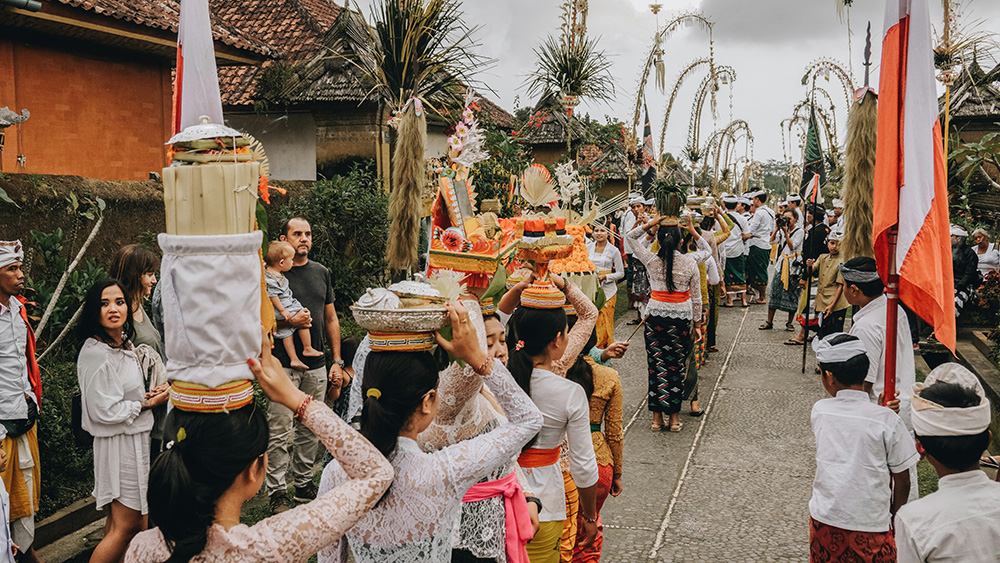
Chiang Mai is rich in cultural experiences, from its staggering number of Buddhist temples to its blend of traditions shaped by Lanna heritage, hill tribes, Chinese, Shan, and Burmese influences.
Many visit Thailand for its temples and traditions, and Chiang Mai has to offer one of the richest cultural experiences in the country. It’s not uncommon to stumble across monks collecting alms at sunrise or hear temple bells echoing across the Old City.
The city’s two biggest festivals—Songkran (Thai New Year) and Loy Krathong—are especially beautiful here. Songkran turns the streets into a full-blown water fight, while Loy Krathong sees thousands of candle-lit baskets float down rivers and lanterns rise into the sky.
Bali, meanwhile, is also steeped in spirituality, with thousands of unique Hindu temples set among rice fields, cliffs, and coastlines. Temples like Uluwatu and Tanah Lot offer dramatic settings, while daily rituals and offerings (canang sari) are part of everyday life.
Bali’s cultural calendar is packed too: Galungan, Nyepi, and countless local ceremonies make it easy to witness traditional Balinese life in motion.
Verdict: Draw. Chiang Mai feels more immersive and varied in its cultural mix, especially with its local festivals. But Bali’s living Hindu culture and temple traditions are deeply captivating. Both destinations are incredibly rewarding for culture lovers.
Food In Bali Vs Food In Chiang Mai
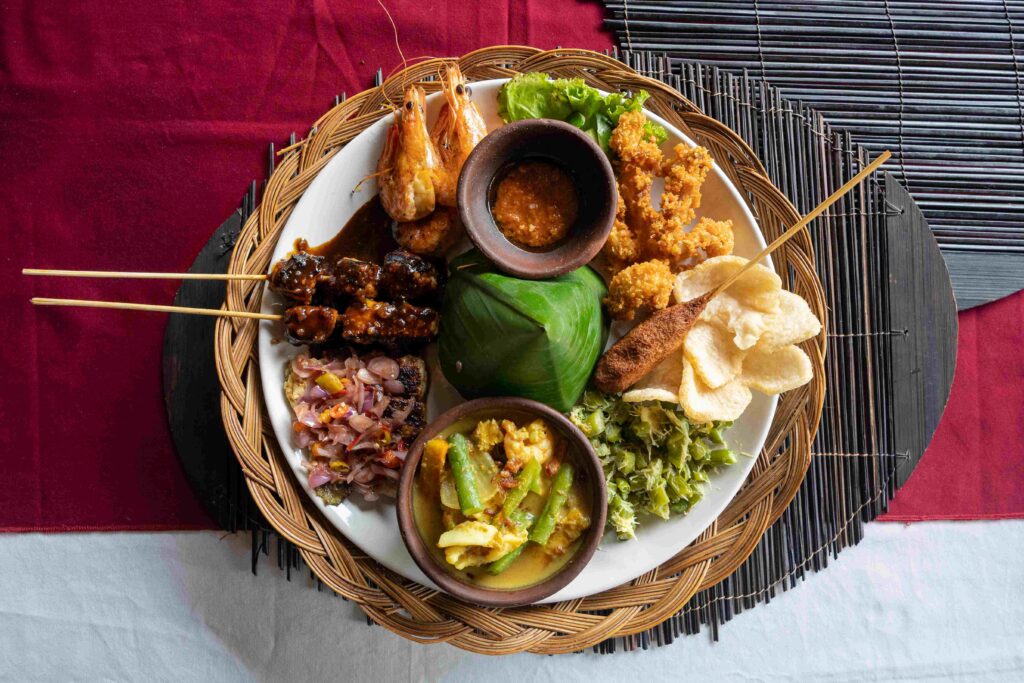
Chiang Mai is a paradise for lovers of Thai food, with spicy northern dishes you won’t find elsewhere.
As well as restaurants and cafes in the Old City and Nimman area, you’ll find an endless supply of delicious food at the Night Bazaar and the famous Saturday and Sunday walking street markets.
From fragrant khao soi and spicy sai ua to sweet mango sticky rice, the local cuisine is affordable and authentic, and you can still find the Thai classics like pad Thai.
You’ll also spot influences from Shan, Burmese, and Chinese kitchens, reflecting the city’s unique cultural mix.
There are international options, but they’re usually smaller and more niche compared to Bali, and often overpriced.
Bali’s food scene is another level when it comes to variety.
Alongside Indonesian and Balinese food like babi guling and nasi campur, there’s a massive international food presence. Think high-quality pizza, Japanese, vegan-friendly cafés, modern Australian brunches, Chinese, Indian, Mexican, you name it.
In hotspots like Canggu, Ubud, and Seminyak, there’s something on every corner, with stylish settings and beachside views to match.
Verdict: Bali wins. Chiang Mai might edge it on traditional local food, but Bali’s incredible diversity of flavours and top-tier dining experiences make it the stronger choice for most travellers.
Aesthetics Matter: Chiang Mai Or Bali?
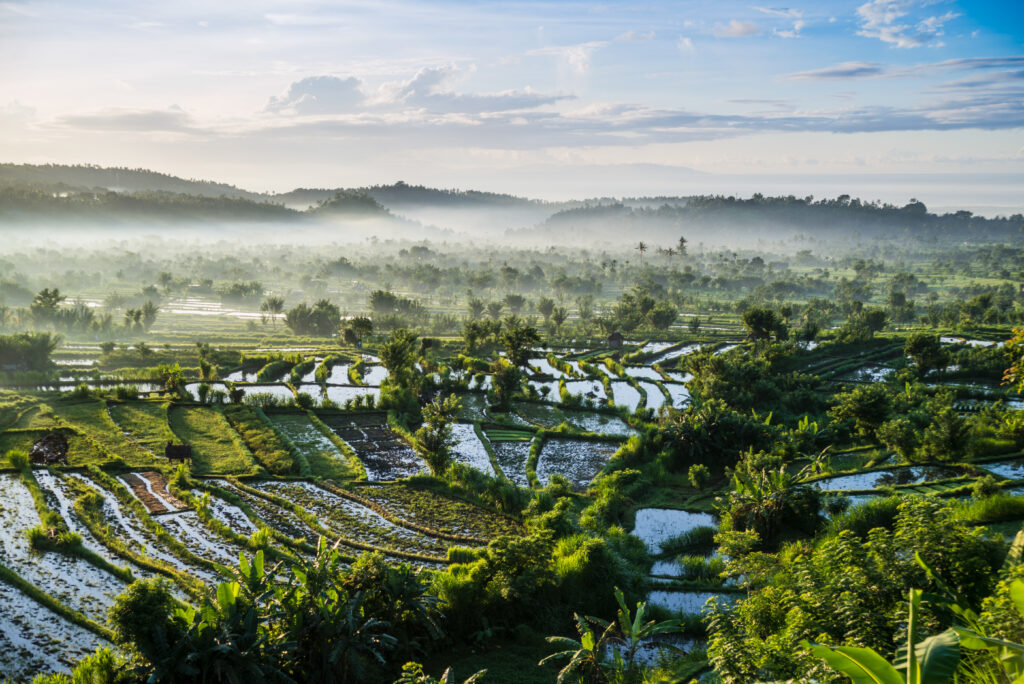
Chiang Mai is a charming city that blends old-world heritage with misty mountain views and laid-back café culture.
The Old City is full of leafy lanes, crumbling temples, and golden chedis, while the surrounding hills offer waterfalls, jungle hikes, and remote villages. There’s a rustic, earthy beauty here, especially during the cool and rainy seasons when the city is not blanketed in burning-season smoke.
Bali, however, is on another level when it comes to aesthetics. Picture lush rice paddies in Ubud, towering limestone cliffs in Uluwatu, surf beaches with black or white sand, volcanic peaks, temples perched on the sea, and traditional villages where daily offerings line the streets.
Bali has mastered the art of presentation. From boutique resorts to cafés that double as Instagram backdrops, it’s a visual feast. The blend of tropical scenery, rich tradition, and modern design gives Bali a consistent wow factor.
Chiang Mai’s surroundings have some lovely greenery, but Bali’s coastlines, dotted with palm trees, offer those postcard-perfect views most travellers are after.
Verdict: Bali wins. Chiang Mai has its charm, but Bali’s visuals are more varied, dramatic, and endlessly stunning. It’s a place that impresses from every angle.
Bang For Your Buck: Which One Is Better For Your Bank?

Chiang Mai is famously affordable. Accommodation ranges from budget guesthouses to boutique hotels, and daily expenses like food, transport, and attractions are incredibly low.
You can get a tasty meal at a street stall for a couple of dollars, and even private apartments or condos in the city cost far less than in most major destinations. For travellers on a budget or digital nomads staying long term, Chiang Mai offers outstanding bang for your baht.
Bali, while still affordable compared to Western countries, is noticeably more expensive than Chiang Mai, especially in popular tourist areas. You’ll pay more for accommodation, dining, and transport in places like Canggu, Seminyak, or Ubud.
That said, Bali also offers a wider range of options, from cheap warungs to luxury dining, and from hostel dorms to five-star resorts. The island caters to every budget, but value can vary depending on how you travel.
Verdict: Chiang Mai wins. It’s hard to beat Chiang Mai when it comes to stretching your budget. While Bali offers more luxury and variety, Chiang Mai remains one of the most cost-effective destinations in Southeast Asia.
It’s worth noting, however, that if you’re coming from Australia or New Zealand, Bali would be significantly cheaper to travel to than Chiang Mai.
Shopping In Bali Or Shopping In Chiang Mai, Which Is Better?

Chiang Mai offers a unique shopping experience that highlights local craftsmanship and northern Thai culture.
You’ll find bustling markets like the Warorot Market, where fresh produce, textiles, and handmade goods are sold side by side. The Sunday Walking Street Market in the Old City is a must-visit, full of local artisans, street food stalls, and live performances.
Chiang Mai boasts affordable souvenirs, traditional hill tribe handicrafts, and bamboo house décor items. For those on a tight budget, the city offers plenty of value without sacrificing quality.
Bali’s shopping scene is more varied and tailored to a wider range of tastes and budgets.
From trendy boutiques in Seminyak to artisan markets in Ubud, Bali offers everything from high-end designer wear to vibrant local crafts like batik textiles, silver jewellery, and wood carvings. Tourist hotspots like Kuta and Canggu have shops selling international brands alongside local goods, giving visitors a mix of international food, fashion, and art.
Bali also has numerous shopping malls, which cater to those who want modern conveniences and international styles.
Verdict: Bali wins for variety and accessibility, especially if you enjoy mixing shopping with cafe culture and art galleries. But Chiang Mai offers authenticity and affordability that can’t be beaten by many Southeast Asian gems.
Which Place Is Better For Digital Nomads, Chiang Mai Or Bali?
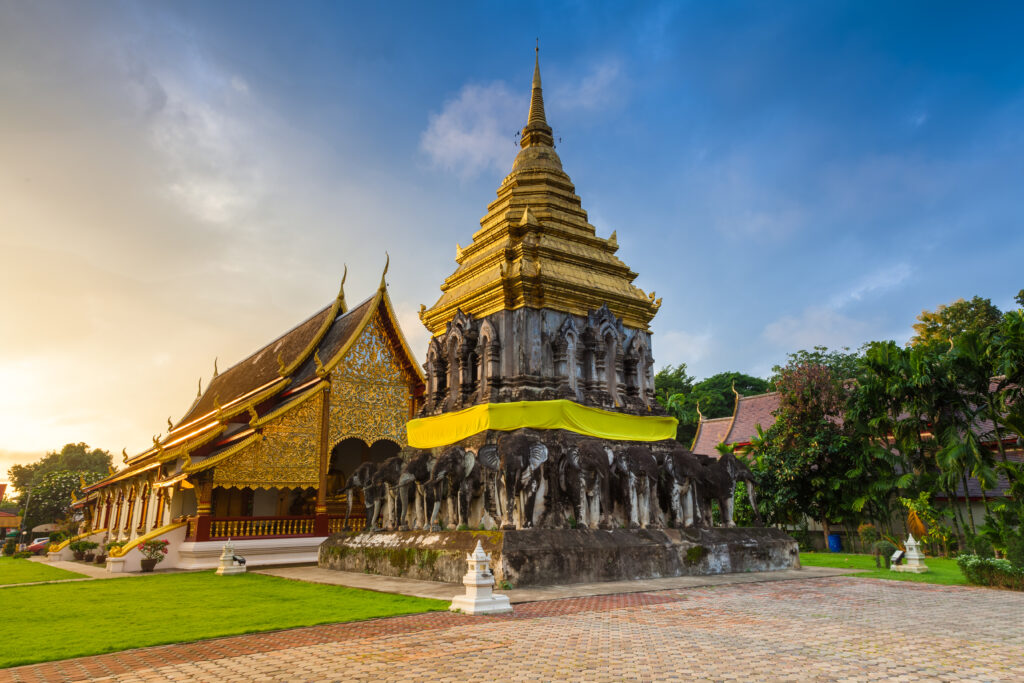
Chiang Mai is often hailed as a digital nomad hotspot for good reason. It boasts reasonably priced accommodation, cheap local eats, reliable internet, and a tight-knit community of online workers.
Co-working spaces are scattered throughout the city, with some tucked away in bamboo houses or creative hubs. Chiang Mai’s laid-back lifestyle and warm climate appeal to those wanting a balance between work and relaxation.
The city’s lower transportation costs and cheap scooter rental options add to the appeal, making it easy to explore nearby mountain towns or take a weekend trip to Chiang Rai.
Bali, on the other hand, has grown into a world-renowned digital nomad paradise, especially in Canggu and Ubud.
Bali offers stunning natural beauty, sunny skies most of the year, and a rich digital nomad lifestyle with networking events, wellness retreats, and health insurance options tailored for foreigners. The island’s diverse food scene, from local to western food, keeps people interested.
Bali tends to be a bit more expensive but makes up for it with vibrant co-working spaces, beachfront cafes, and a broader international community. The island’s stunning beaches and nearby islands make it a great base for remote workers who value lifestyle as much as productivity.
Verdict: Draw. While Bali has more variety to keep digital nomads busy, Chiang Mai is great for those just starting out or earning less due to its cheaper cost of living.
Which Place Is Better For Expats, Chiang Mai Or Bali?
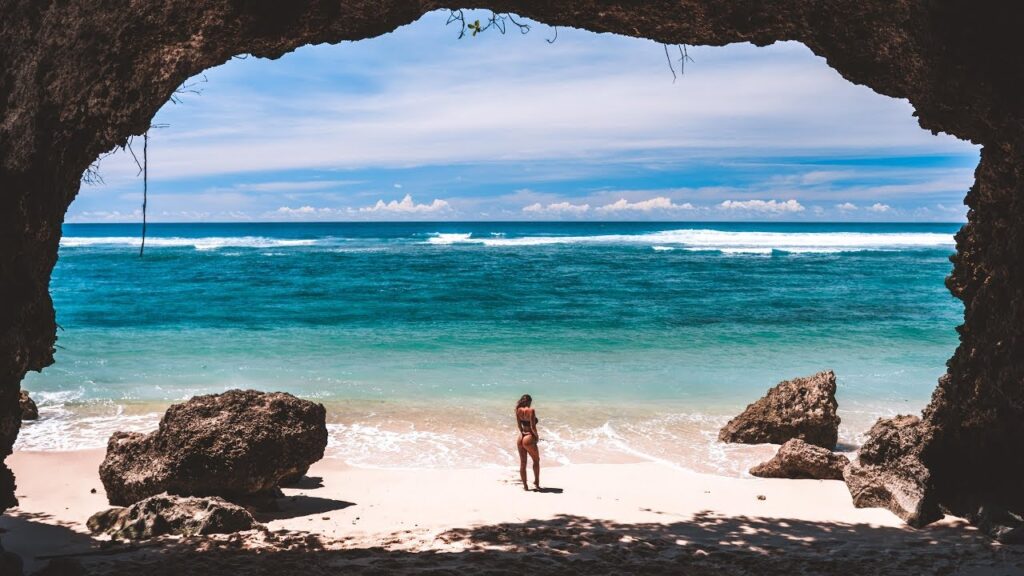
Chiang Mai offers a welcoming community for expats, with cheap accommodation, good healthcare options, and a slower pace of life that appeals to retirees and long-term travellers alike.
The city has a well-established expat infrastructure, with international schools, gyms, and cultural events. While Chiang Mai is not a beach destination, its beautiful surrounding landscape and proximity to other northern Thai hotspots keep expats entertained.
The cost of living is low, making it possible to enjoy a comfortable lifestyle on a small budget. However, some expats may find the air quality challenging.
Bali attracts expats looking for an island lifestyle with access to both natural beauty and vibrant culture.
The island has a wide range of accommodation options, from affordable guesthouses to luxury villas – and many expat-friendly services.
Bali’s warm climate and sunny skies year-round suit those who want outdoor activities like surfing, hiking, or yoga. While the cost of living can be higher than in Chiang Mai, many expats feel the lifestyle balance is worth it. Bali also tends to have more tourist areas and a more diverse international community, providing plenty of social opportunities.
Verdict: Draw. Both destinations have strong expat appeal. Chiang Mai suits those seeking affordability, cooler mountain air, and a relaxed pace, while Bali wins for its island charm, stunning beaches, and lively cultural scene.
The Result: Bali Vs Chiang Mai

Bali takes the crown with its unbeatable beaches, vibrant nightlife, incredible food variety, and world-class digital nomad scene. Its differing landscapes and lively cultural experiences make it perfect for travellers seeking excitement and variety.
While Chiang Mai offers affordability, rich culture, and a relaxed pace, Bali’s energy, sunny climate, and endless activities put it firmly ahead.
For tropical island vibes and a dynamic lifestyle, Bali wins hands down.
FAQs
What Local Food Should I Try In Bali And Chiang Mai?
Both Bali and Chiang Mai offer delicious local dishes unique to their culture. In Bali, try nasi campur or babi guling, while Chiang Mai is famous for khao soi and sai ua. Sampling these specialties is a must to truly experience each destination’s culinary heritage.
Is International Health Insurance Required To Visit Bali?
While it’s not a legal requirement, international health insurance or solid travel insurance is a must when visiting Bali or anywhere else in Southeast Asia. Medical costs can add up quickly if you get sick or injured, especially in private hospitals. Better to be covered.
Bali, Chiang Mai, Or Phu Quoc?
If stuck between Chiang Mai, Bali or Phu Quoc, there are several things to factor in.
Each has its charm, but Bali comes out on top for most travellers. It offers amazing beaches, a vibrant food and nightlife scene, spiritual experiences, and endless options for every type of visitor.
Chiang Mai is great for culture, coffee, and cool mountain air, while Phu Quoc is more low-key and still developing. If you want the best mix of excitement, comfort, and beauty, Bali wins.
Does Bali Have Co-Working Spaces To Suit My Digital Nomad Lifestyle?
Absolutely. Bali is one of the top destinations in the world for digital nomads, and co-working spaces are everywhere, especially in places like Canggu and Ubud.
These spaces often come with fast Wi-Fi, community events, networking opportunities, and even smoothie bars or yoga classes.
Whether you’re freelancing, building a start-up, or working remotely, Bali has plenty of work-friendly spots to suit your lifestyle.
Final Thoughts On Bali Or Chiang Mai
Both Bali and Chiang Mai offer incredible experiences that attract travellers, digital nomads, and expats from around the world. Whether you’re drawn to Bali’s beautiful beaches, vibrant nightlife, and diverse food scene, or Chiang Mai’s rich culture, cooler mountain air, and affordable living, both destinations deliver plenty to explore and enjoy.
That said, Bali’s unique blend of tropical island vibes, diverse landscapes, and growing creative communities make it particularly appealing for those seeking variety and a dynamic lifestyle. With its world-class restaurants, beachside cafes, and endless opportunities for adventure and relaxation, Bali has something for everyone, from backpackers to luxury travellers.
Chiang Mai shines in its own right with a more laid-back pace, authentic local culture, and all around being a bit cheaper, but if you’re chasing a lively, sunny escape with endless things to do and a truly international atmosphere, Bali often pulls ahead.
Ultimately, your choice depends on what you want from your trip and your travel style, though, at the end of the day, Bali is a beautiful island that ticks more boxes for most travellers.





